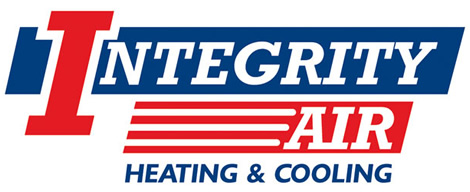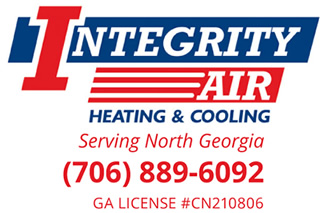HVAC zoning systems are designed to divide a home into different areas or “zones”, each with its own temperature control. This allows homeowners to customize the heating and cooling settings for different parts of the house, improving overall comfort and energy efficiency.
Think about most new cars. Many have individual climate zones for the driver, the passenger, and even the backseats. Considering how small a car is when compared to a typical North Georgia home that only has one thermostat to serve the entire space, and you can see the need immediately! Zoning your HVAC systems really allows us to create different comfort zones throughout the house.
And comfort truly is a primary concern for homeowners when it comes to heating and air conditioning… especially in our hot, humid Georgia summers and sometimes below freezing winters. That’s why the ability to set and maintain different temperatures in various parts of the house can significantly enhance your overall comfort. Here’s how:

- Personalized Temperatures: Family members with different temperature preferences can have their own spaces set to their desired levels.
- Consistent Comfort: Large homes or homes with multiple stories often have rooms that are too hot or too cold. Zoning helps maintain consistent comfort throughout the house.
- Night and Day Settings: Different zones can be set for optimal comfort during the day and night, such as cooler bedrooms for sleeping and warmer living areas for daytime activities.
Zoning your HVAC system is not unlike the zones already established in a home for plumbing and electricity… imagine flipping one switch and your entire house lights up – or turning on a faucet to discover every sink starts running water! So why would you heat or cool the entire house when you’re only using one or two rooms at a time?
HVAC ZONING BENEFITS
Need more convincing? Here are some added benefits of HVAC zoning systems:
- Increased Comfort: Different areas of a home can be kept at different temperatures, catering to the preferences of different occupants. Hot and cold spots are virtually eliminated as well.
- Increased Efficiency: By only heating or cooling specific zones as needed, HVAC zoning systems can reduce energy consumption and lower utility bills. Some studies have shown that the HVAC systems can comprise up to 50% of a monthly utility bill. Zoning systems can reduce that and save more energy. When more thermostats are added and more temperature control is achieved, there’s more conservation.
- Increased Flexibility: Homeowners can adjust the temperature in rarely used rooms, like guest rooms or basements, without affecting the rest of the house.
- Increased Control: With a zoned system, each zone typically has its own thermostat (many are even wireless, or work with motion detectors) allowing precise control over the climate in each area sometimes automatically when you’re asleep or away.
- Improved Air Quality: By controlling the airflow to different zones, HVAC zoning systems can help manage and improve indoor air quality.
TYPES OF ZONING SYSTEMS
HVAC zoning systems generally come in two main types – centralized ducted systems and ductless (mini-split) systems.
Ducted systems use a central HVAC unit with a network of ducts to distribute air throughout the home. Each zone has its own thermostat that communicates with the central control panel. When a thermostat calls for heating or cooling, the central unit activates, and motorized dampers open or close to direct conditioned air to the appropriate zones. Ducted zoned systems are usually good for homes with existing ductwork and can provide efficient and effective zoning with minimal visual impact.
Ductless (mini-split) systems use individual air handlers installed in different zones, each connected to an outdoor unit by refrigerant lines. There are no ducts involved as each air handler operates independently and is controlled by its own thermostat making this type highly flexible and easy to install.
Each style of HVAC zoning system has advantages and the choice may depend on your home's existing infrastructure. If you're considering an HVAC zoning system, think about the areas of your home where improved comfort would be most beneficial, then contact us.
Integrity Air in Jasper, Georgia can tailor an HVAC system to meet your needs. Need more detailed information on how HVAC zoning systems work or tips on implementing one in your home? Contact Brandon and his team at Integrity Air for a free consultation.


